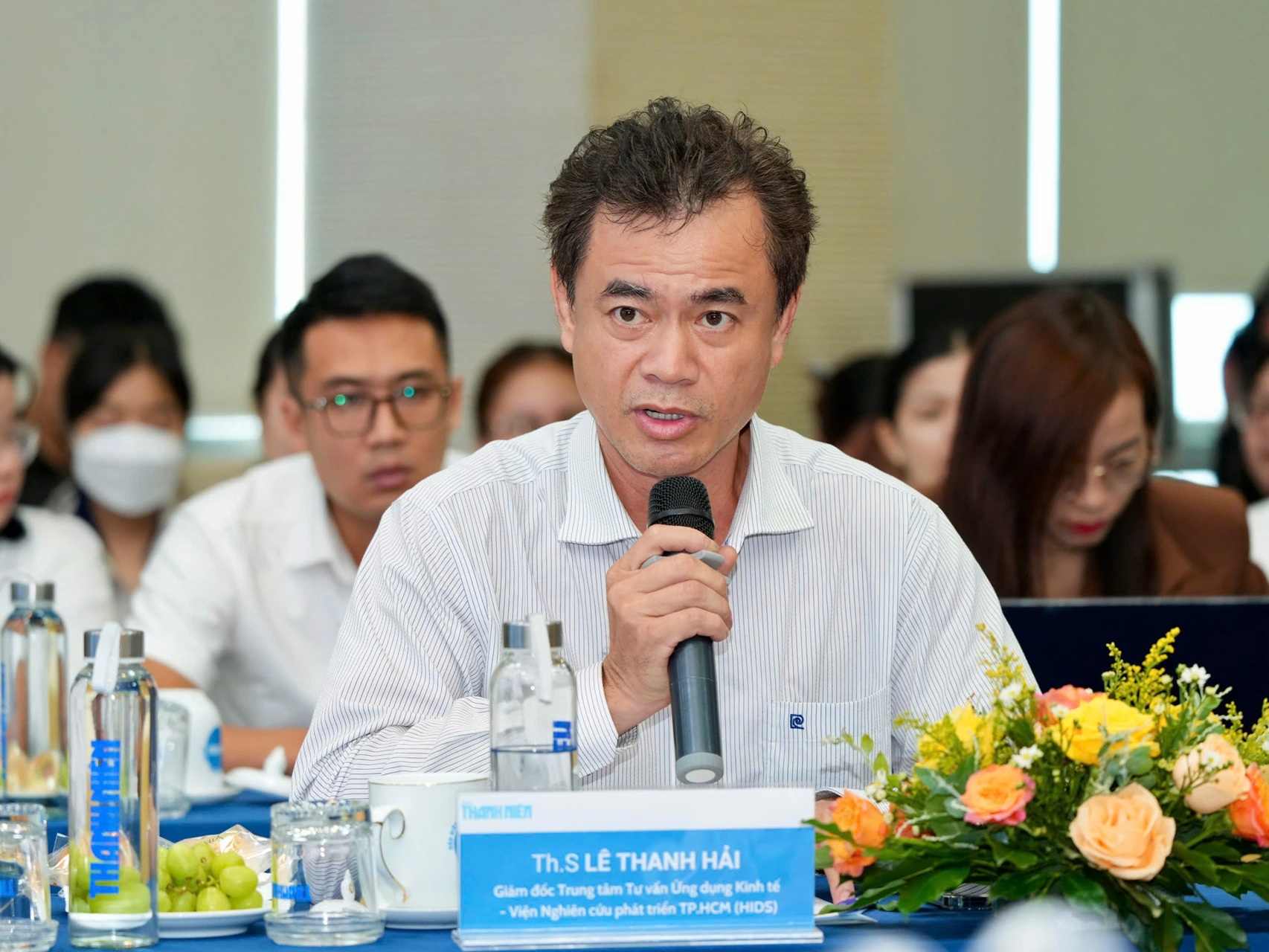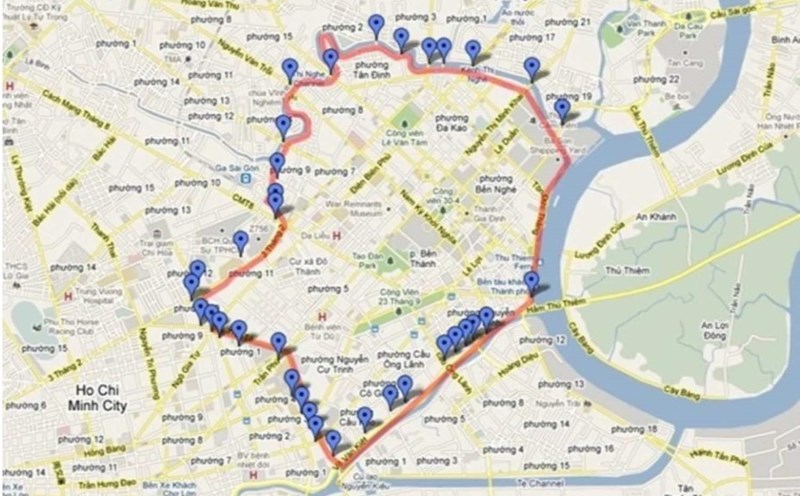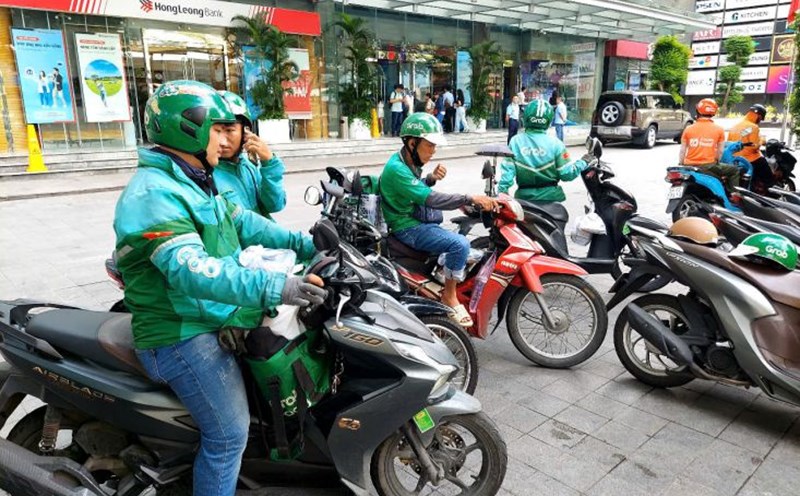This information was announced by Master Le Thanh Hai - Director of the Economic Application Consulting Center (under HIDS) at the seminar "Reducing emissions, filtering the air" organized by Thanh Nien Newspaper on the morning of August 22.
According to Mr. Hai, from 2026, Ho Chi Minh City will start the roadmap by not allowing drivers using gasoline vehicles to register newly on transportation service platforms. The existing drivers have 3 years (2026 - 2028) to gradually switch to electric vehicles.
The main proposed solution is to lend drivers to installment pay for electric vehicles, with the method of taking savings from fuel to gradually pay within 3 years, an average of about 1 million VND/month.
In addition, HIDS recommends that the State support exemption of registration fees, exemption of value added tax when purchasing electric vehicles, and deploy preferential loan packages to encourage drivers to switch.
With this policy, HIDS expects to replace 30% of technology vehicles and current deliveries with electric vehicles by 2026. The incentive program will continue to last until the end of 2027, striving to increase the conversion rate to 80%.

2027 is identified as the key period. The government will combine social policies with green transport policies, allocating about 50 billion VND from the budget to support 10,000 - 15,000 poor, near-poor and low-income drivers.
Each person will be supported with 3 - 5 million VND as a deposit of 25% of the vehicle value. The remainder will be paid in savings from fuel costs.
From 2028, policies to exempt registration fees and value added tax will no longer apply. The State only maintains preferential loan packages, according to the principle of "early conversioners benefit more".
By January 1, 2029, Ho Chi Minh City plans to completely ban two-wheeled gasoline vehicles from providing transportation and delivery services on all platforms.
With the above conversion roadmap, we are completing the policy report to submit to the Ho Chi Minh City People's Committee. From there, management agencies will review, adjust and apply it in practice" - Mr. Le Thanh Hai affirmed.
At the seminar, Grab representative said that many drivers are interested in the conversion plan, but in reality, up to 80% have never experienced electric vehicles and more than 60% are not ready due to concerns about high initial investment costs and difficulty accessing preferential loans.
Grab proposes a support policy that needs to balance the goal of developing green transportation and ensuring the livelihood of drivers.
In particular, the prerequisite is to quickly develop public charging infrastructure, ensure shared charging stations between companies and the stability of the power grid.
In addition, the conversion roadmap needs to be associated with the time of building infrastructure, developing the electric vehicle ecosystem and perfecting the public transport system to gradually reduce the demand for personal vehicles.
For technology drivers and delivery drivers, Grab proposes to apply criteria based on years and vehicle performance: vehicles over 12 years old must be converted, while new and still in good use vehicles should be allowed to continue operating.
Finally, this enterprise emphasized the need for more strong financial tools such as subsidies, support for low interest rates, tax and fee exemptions, and at the same time, having policies to prioritize electric vehicles in operations such as parking lots, pick-up and drop-off areas or private lanes.
In addition to the project to convert 400,000 technology gasoline motorbikes to electricity, the Ho Chi Minh City Department of Construction is completing a project to control vehicle emissions.
The project proposes to establish a low emission zone in the central area from 2026 to limit service motorbikes that do not meet Euro 2 standards and commercial cars that do not meet Euro 4.
The Ho Chi Minh City Department of Construction will widely collect opinions from people, businesses and departments in September 2025, before submitting to the Ho Chi Minh City People's Council.











